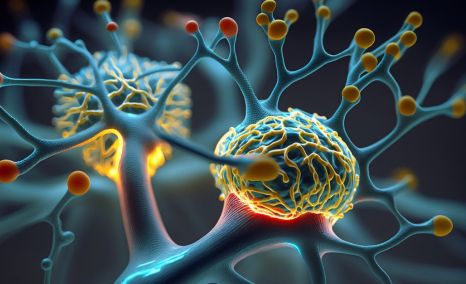Analyzing the Potential of AAV2-GDNF Gene Therapy in Parkinson’s Disease Treatment: Insights from Phase Ib Trial Data
Apr 26, 2024
- AB-1005 represents a pioneering gene therapy utilizing an adeno-associated viral vector serotype 2 (AAV2) to deliver the human glial cell line-derived neurotrophic factor (GDNF) transgene directly into the brain. This innovative technique allows for precise and sustained expression of GDNF, offering promising therapeutic potential for conditions like Parkinson’s disease characterized by the degeneration of midbrain dopaminergic neurons.
- GDNF, a member of the transforming growth factor-β superfamily, has demonstrated remarkable neuroprotective effects in preclinical studies. By promoting the survival and differentiation of dopaminergic neurons in the midbrain, GDNF holds the promise of halting or even reversing the progressive degeneration observed in Parkinson’s disease, offering hope for improved treatment outcomes and quality of life for affected individuals.
Parkinson’s disease (PD) remains a challenging neurodegenerative disorder, demanding innovative therapeutic approaches. Among these, gene therapy has emerged as a potential game-changer, with AAV2-GDNF (AB-1005) leading the charge. Presented at the 2024 American Academy of Neurology conference by Asklepios BioPharmaceutical, Inc., the Phase Ib trial data of AAV2-GDNF offers significant insights into its safety and preliminary efficacy in participants with mild to moderate PD.
The rationale behind AAV2-GDNF lies in its ability to deliver glial cell-derived neurotrophic factor (GDNF) directly to the putamen, a region critical for dopaminergic function. GDNF, essential for dopaminergic neuron survival and development, holds promise as a disease-modifying agent, potentially halting or even reversing the neurodegenerative cascade observed in PD.
The phase Ib trial enrolled participants with varying disease severity and demonstrated a commendable safety profile for AAV2-GDNF. While all participants experienced treatment-emergent adverse events (AEs), the majority were transient and perioperative in nature. Importantly, serious AEs were unrelated to AAV2-GDNF, bolstering confidence in its safety. Notably, the occurrence of asymptomatic T1 hypointensities in a subset of participants highlights the importance of continued monitoring and evaluation.
Downloads
Click Here To Get the Article in PDF
Recent Articles
- A New Dawn: Frexalimab’s Quest to Redefine Multiple Sclerosis Therapy
- Revolutionizing gMG Treatment: Efgartigimod’s Triumph in Curtailing Oral Corticosteroid Dep...
- Unveiling Boundless Horizons: Unlocking BHV-7000’s Potential in Epilepsy
- Promising Efficacy and Safety of Fenebrutinib in Relapsing Multiple Sclerosis (RMS): Insights fro...
- Unveiling the Promising Long-Term Potential of Subcutaneous Efgartigimod PH20 in Managing gMG
Although the trial’s primary focus was safety, preliminary efficacy outcomes offer tantalizing glimpses of AAV2-GDNF’s therapeutic potential. The mild cohort exhibited stability in PD clinical-rating scales, suggesting the treatment’s ability to maintain disease status. Conversely, the moderate cohort showed promising improvements in motor function and levodopa equivalent daily dose (LEDD) at the 18-month mark, hinting at possible clinical benefit. These findings underscore the need for further exploration in larger, randomized controlled trials to validate efficacy.
Conclusion
The data presented by Asklepios BioPharmaceutical, Inc. (AskBio) at the American Academy of Neurology conference underscores the importance of AAV2-GDNF as a potential therapeutic avenue in PD management. Its safety profile and preliminary efficacy outcomes pave the way for future investigations, with a Phase II randomized controlled study on the horizon. If confirmed, AAV2-GDNF could herald a new era in PD treatment, offering hope for disease modification and improved quality of life for patients.
Downloads
Article in PDF
Recent Articles
- Risvodetinib: A Promising Breakthrough in Parkinson’s Disease Treatment
- Soticlestat (TAK-935): A Paradigm Shift in Epilepsy Treatment Strategies
- Breakthroughs in Parkinson’s Management: Key Findings from Neuroderm’s ND0612 Studies
- Unveiling the Safety and Dosing Patterns of IPX203: Insights from a Phase III Clinical Study
- Comprehensive Insights into Ocrelizumab: From Early-stage RRMS to Long-term Treatment and Subcuta...




